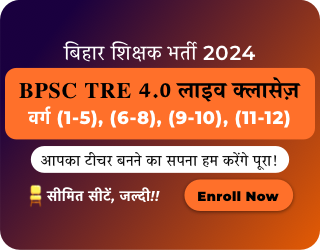Table of Contents
When the National Education Policy of 2020 came, it brought plenty of radical changes at all levels of education in India to bring it to par with the demands of current times and technological changes. The NEP 2020 brought changes from primary level to Higher Education, including PhD degrees. So, let’s look at the changes to implement the NEP 2020 for PhD students. NEP 2020 changes in multiple areas affect admission criteria, research thrust, and more. It becomes essential that a PhD candidate knows about these things to better plan their PhD degree.
What is NEP 2020?
The National Education Policy, or NEP 2020, is the first education policy of the 21st century in India. The Union Cabinet Ministry approved NEP on 29 July 2020, replacing the previous National Education Policy 1986. The NEP outlines the vision of the new education system in India. NEP 2020 policy aims to make education more inclusive, equitable, and holistic. NEP 2020 is a holistic policy that covers elementary and university education in urban and rural India. Without getting into the specifics, the aim of the policy is to make “India a global knowledge superpower”.
| Particulars | Details |
|---|---|
| Full-form | National Education Policy, 2020 |
| Introduced in | July 2020 |
| Approved by | Union Cabinet of India |
| Replaced | National Education Policy, 1986 |
| 5 Key Pillars | Quality Affordability Equity Access Accountability |
| New education Framework | 5+3+3+4 |
NEP 2020 Changes for Higher Education
These following highlights from the National Education Policy 2020 aim to transform education in India and make it more accessible, inclusive, and aligned with the changing needs of the 21st century.
- Increase in GER: Aims to raise Gross Enrollment Ratio in higher education to 50% by 2035, adding 3.5 crore new seats in higher education institutions.
- Multidisciplinary Education: Creation of Multidisciplinary Education and Research Universities (MERUs) at par with IITs and IIMs to promote global standards of education.
- National Research Foundation: Establishment of an apex body to foster research culture and capacity across higher education.
- Single Regulatory Body: Formation of Higher Education Commission of India (HECI) with four verticals – National Higher Education Regulatory Council (NHERC), General Education Council (GEC), Higher Education Grants Council (HEGC), and National Accreditation Council (NAC).
- Faculty Empowerment: Measures to motivate, energize, and build capacity of faculty through transparent recruitment, curricular freedom, and incentivizing excellence.
- Focus on Teacher Education: National Curriculum Framework for Teacher Education (NCFTE) 2021 to be formulated, and minimum degree qualification for teaching to be a 4-year integrated B.Ed. degree by 2030.
- National Mission for Mentoring: Establishment of a mentoring program with senior/retired faculty providing support to university/college teachers.
- Digital Education: Emphasizes the use of technology in higher education, recognition of MOOCs, and improving student services.
- Phasing out MPhil: Discontinuing MPhil programs.
- Foreign Universities in India: Facilitating the establishment of campuses by foreign universities in India.
- Fixed Fee Structure: Fixing the fee of private and public universities.
- National Higher Education Regulatory Authority (NHERA): Setting up a higher education regulatory body known as NHERA.
Benefits for PhD with NEP 2020
Here we are providing long term benefits for PHd student and Research Scholars with NEP 2020 in their field.
- Infrastructural Requirements
- Upgrading infrastructure: NEP 2020 demands significant improvements in digital resources, internet connectivity, and modern educational facilities across all institutions.
- Ensuring accessibility: Ensuring that every college has access to the necessary infrastructure is crucial for effective execution.
-
Faculty Training and Development:
- Adapting to new approaches: Faculty members need to adapt to the changing pedagogical methods and technology integration emphasized by NEP 2020.
- Professional development: Implementing training programs to equip educators with the necessary skills and knowledge to deliver quality education in line with the policy.
- Resistance to Change:
- Overcoming resistance: Introducing sweeping reforms in the education system may face resistance from various stakeholders, including students, parents, and educators.
- Creating awareness: Raising awareness about the benefits of NEP 2020 is vital to garner support and ensure successful implementation.
-
Coordination among Stakeholders:
- Effective coordination: Successful implementation requires collaboration among government bodies, educational institutions, policymakers, and regulatory authorities.
- Seamless communication: Establishing effective communication channels among stakeholders to ensure a smooth transition to NEP 2020.
By addressing these challenges and implementing NEP 2020 effectively, students can benefit will get benefits in various areas.NEP 2020 offers college students a well-rounded education with enhanced skills through interdisciplinary studies, technology integration, and research opportunities. It fosters global exposure and inclusive practices, ensuring equal opportunities for all students.
Download UGC NET Study Notes Paper 1 PDF
The direct Link to Download UGC NET Study Notes Paper 1 PDF has been mentioned below. Candidate can download NEP 2020 for PhD Students Study Notes PDF which has been mentioned below.




 UGC NET Commerce Syllabus 2024 PDF Downl...
UGC NET Commerce Syllabus 2024 PDF Downl...
 How to boost your Score in Reading Compr...
How to boost your Score in Reading Compr...
 UGC NET Teaching Aptitude Questions Answ...
UGC NET Teaching Aptitude Questions Answ...















